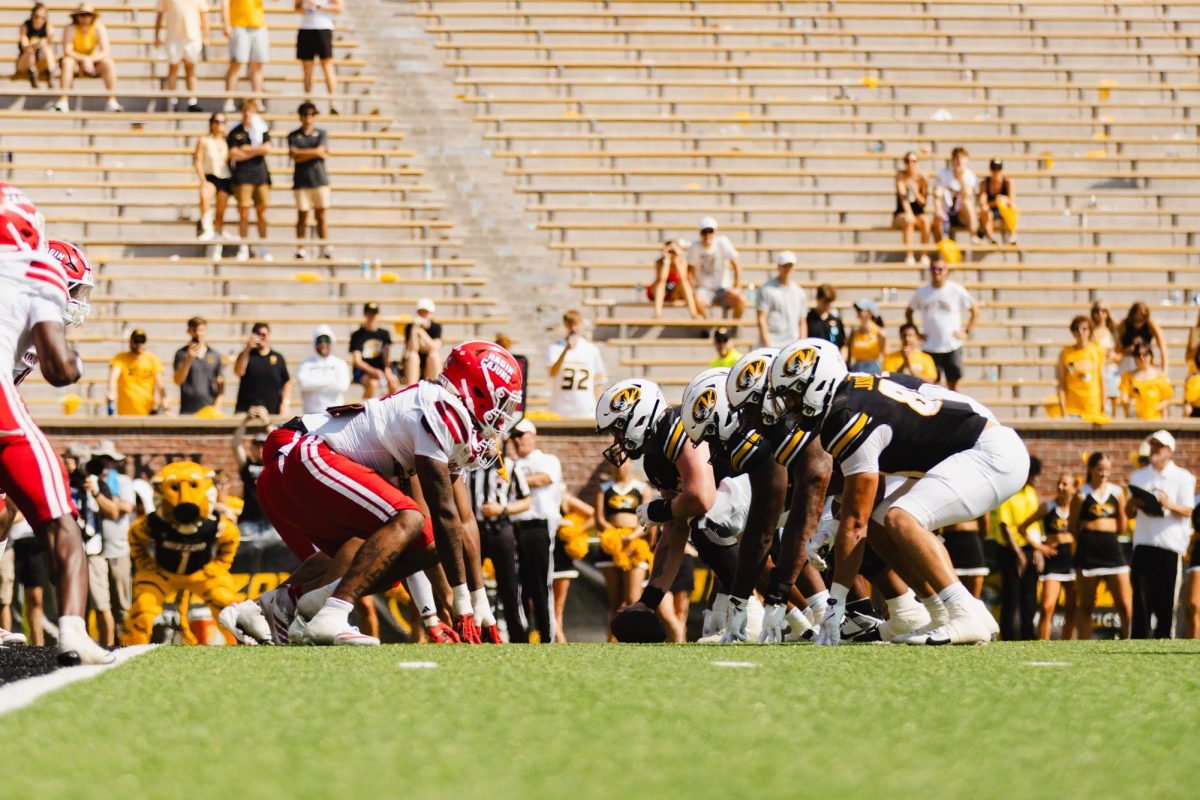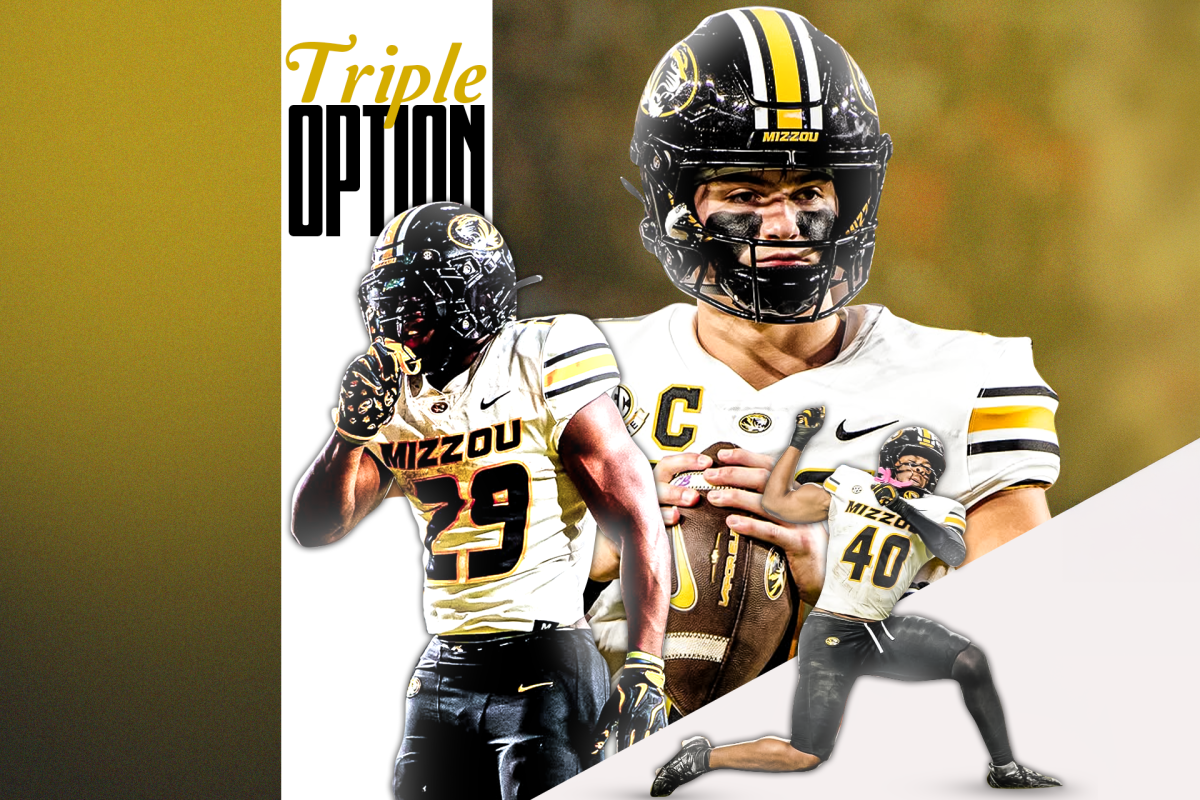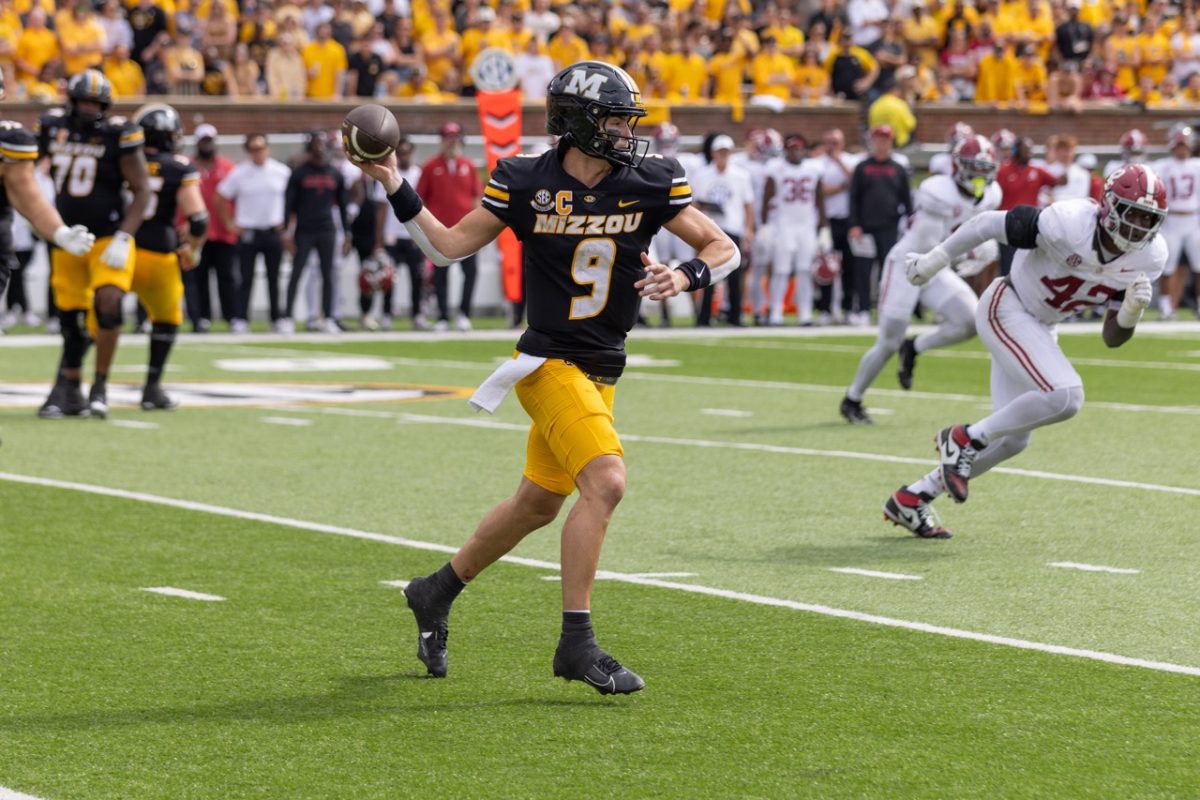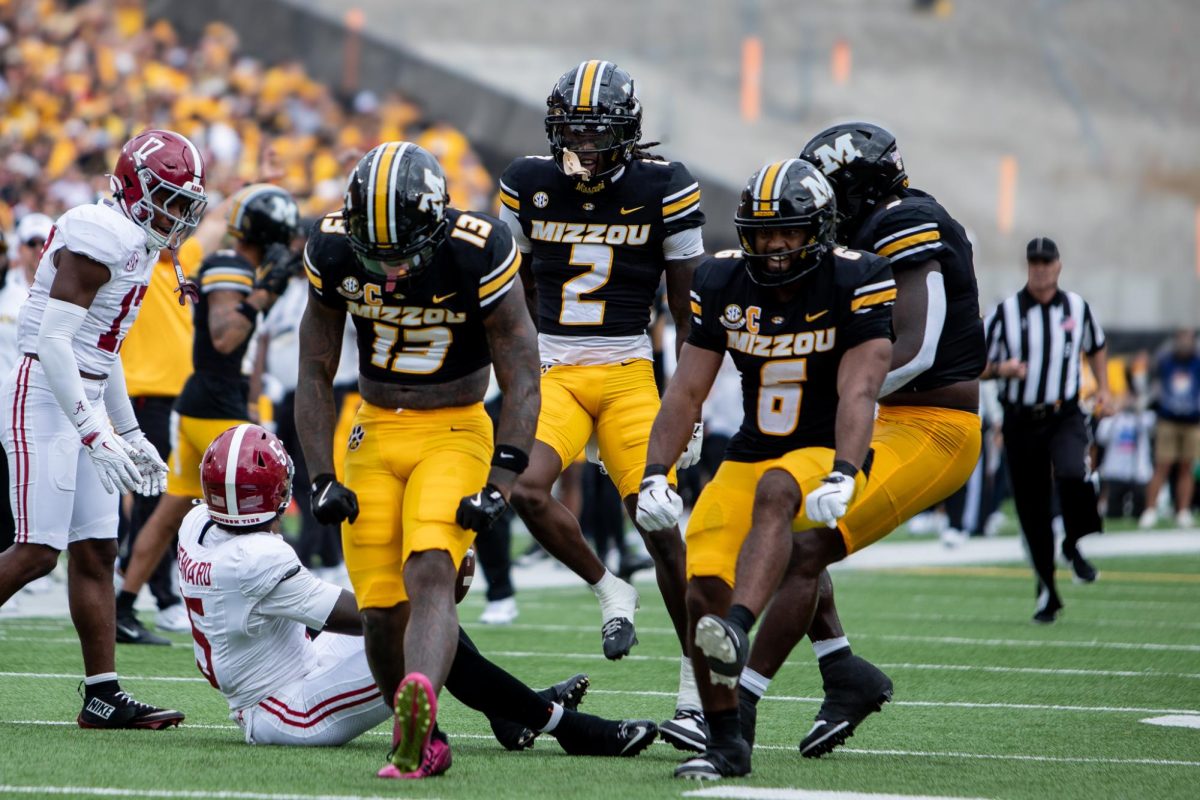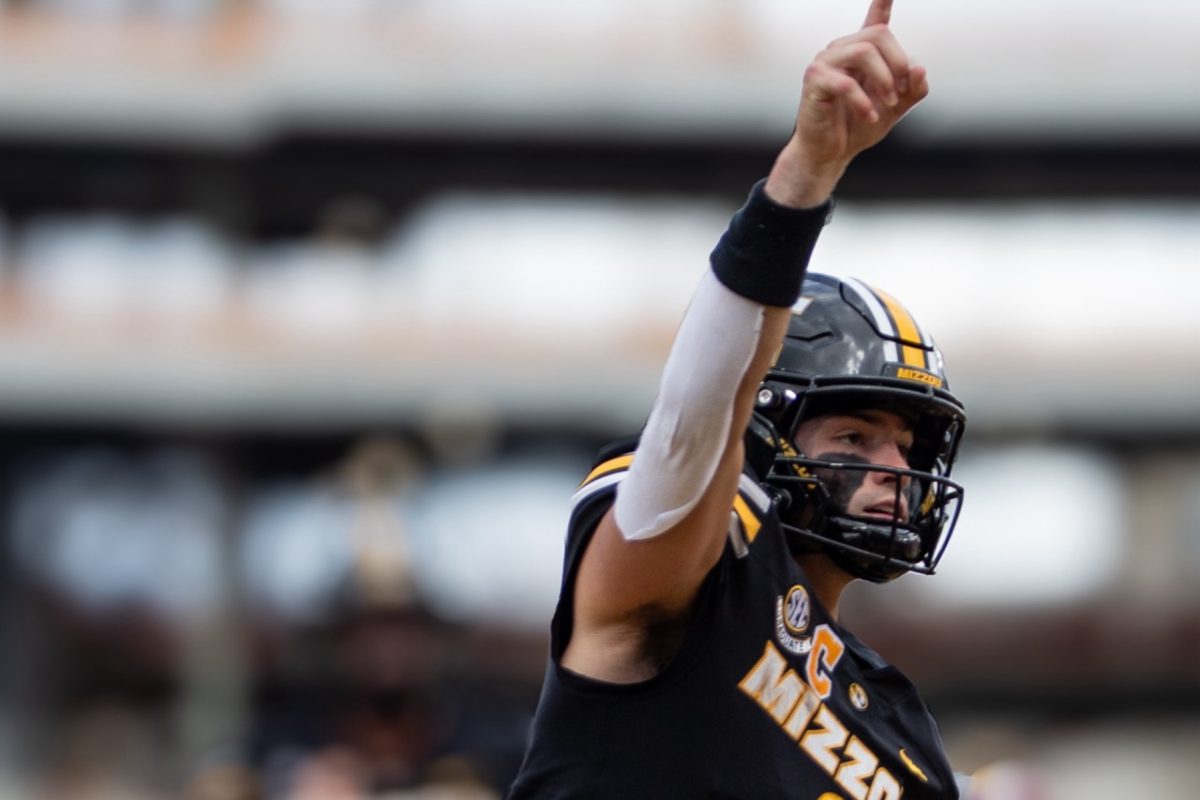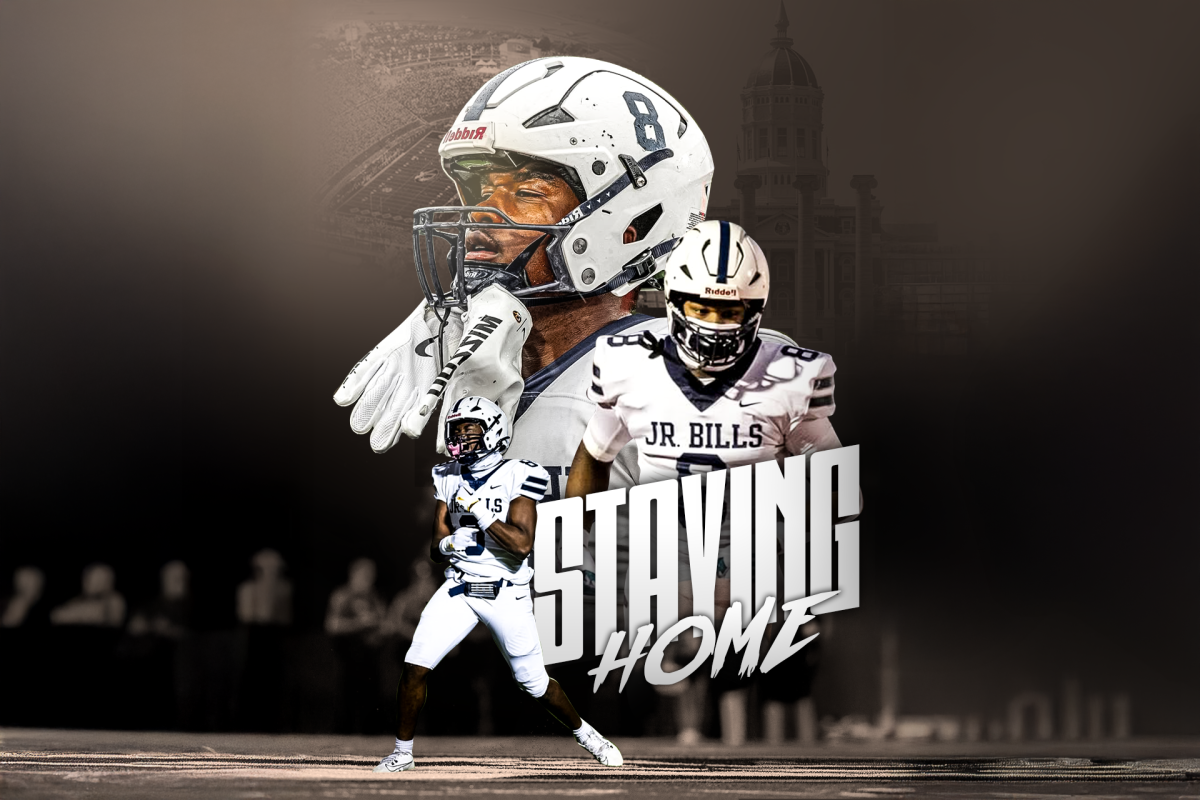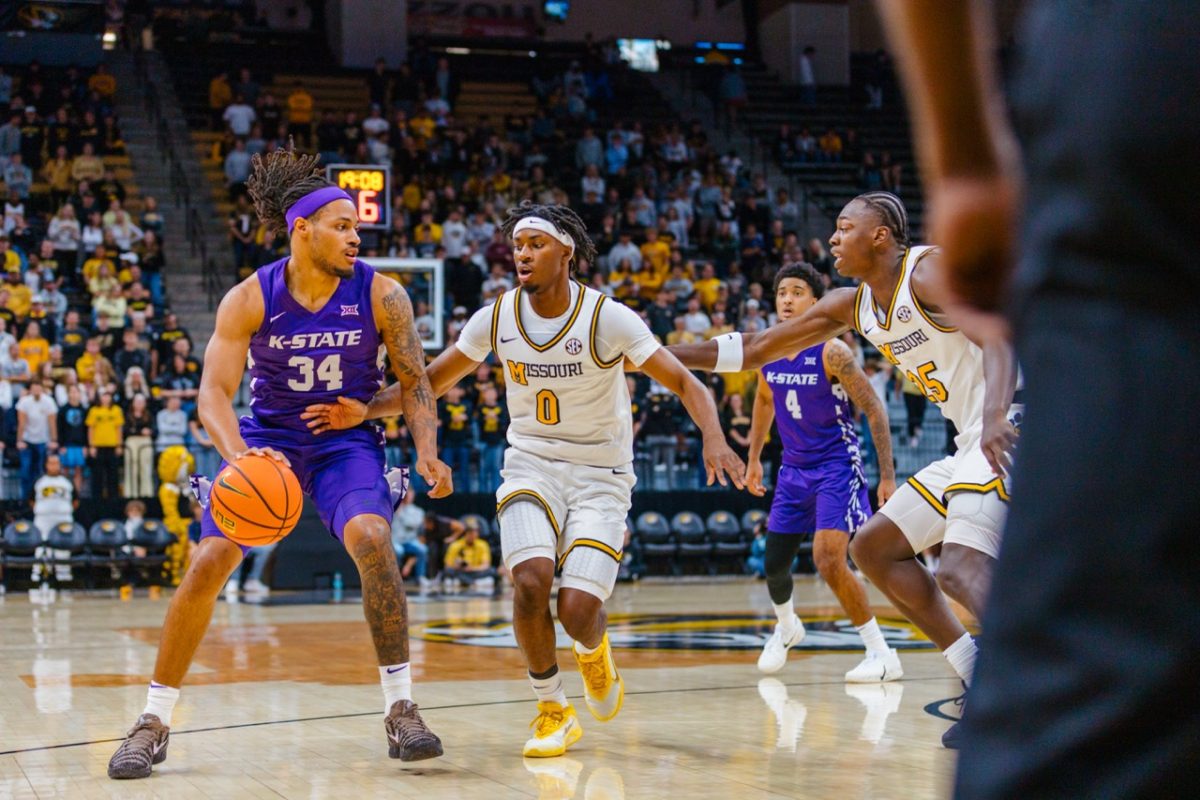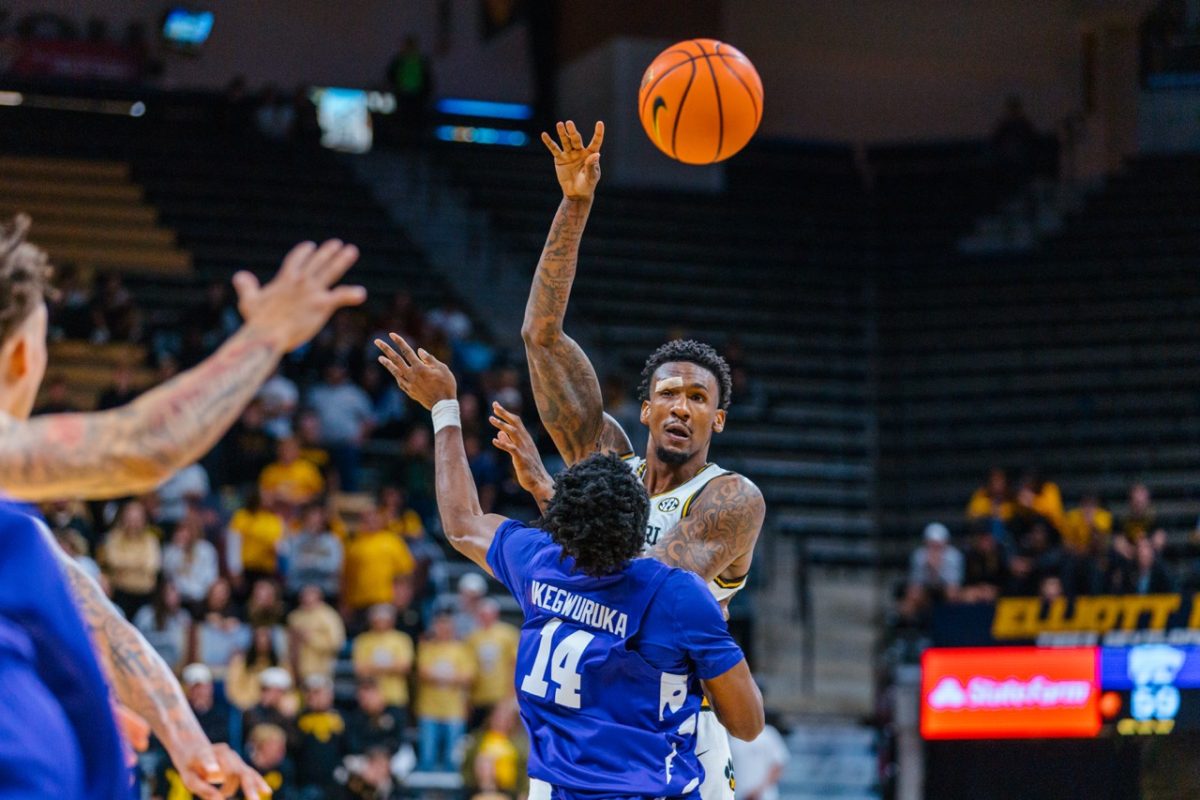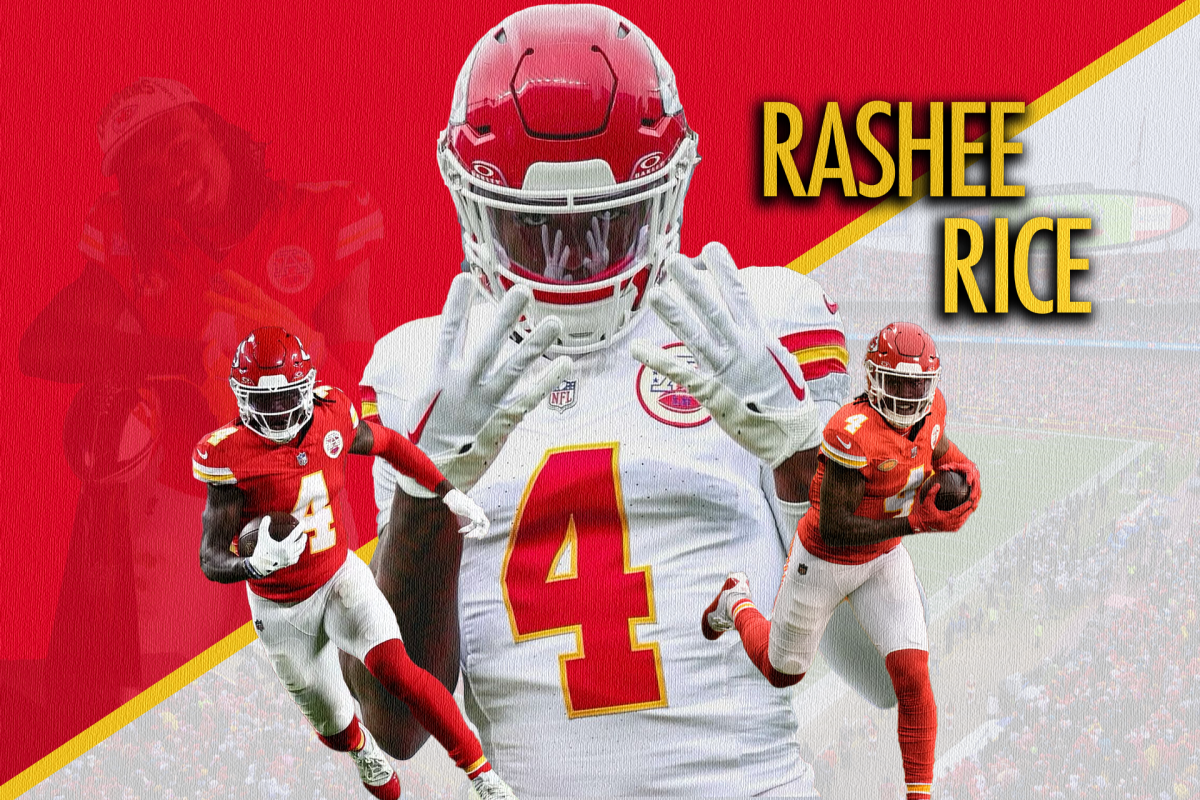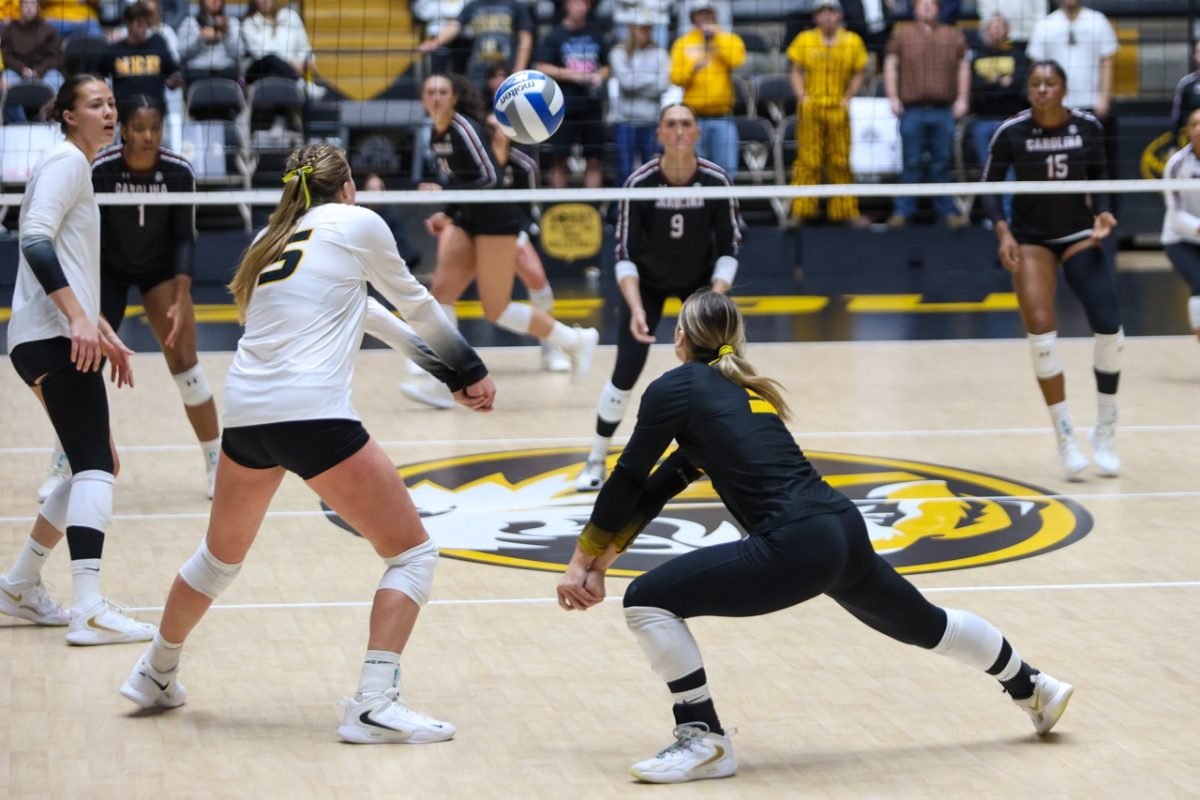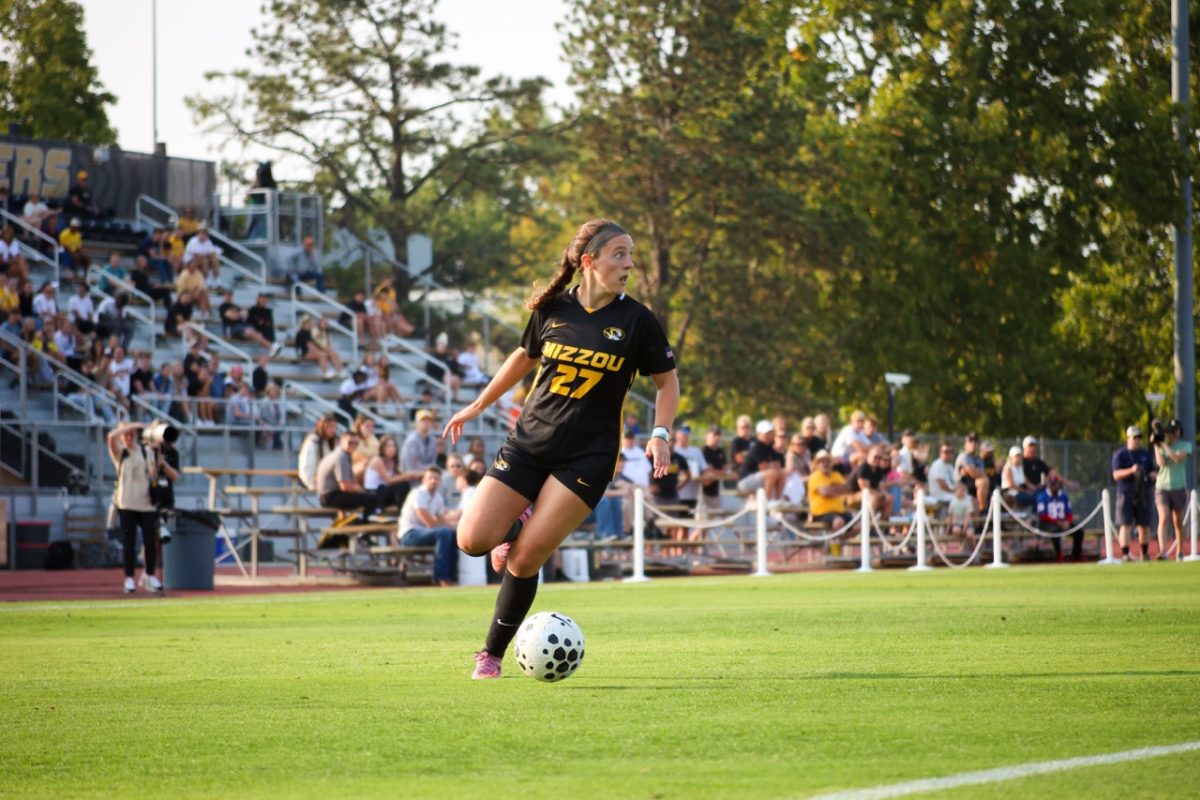Alabama snapped the ball. Less than a second later, Nick Bolton knew where it was going.
The dead giveaway: the Crimson Tide’s left and right guards rotated their hips 90 degrees to the defense’s right, and the center and right tackles took a hard step 45 degrees to the left.
To most people, that probably doesn’t signal what’s next. But to a weak-side linebacker, it means that a run to the right is coming, and that you — the backer — need to follow the blockers and get to the hole as quickly as you can.
To a weak-side linebacker like Bolton, it meant that he was already off and running.
The junior linebacker flew across the width of the field, wrapped up Alabama running back Najee Harris’s legs behind the line of scrimmage and rolled to secure the tackle.
[insert tweet w/video here]
Bolton’s father, Carlos Bolton, watched the play unfold from the stands.
“He read the play, he shot the gap and [he] made a tackle in the backfield,” Carlos Bolton said. “That’s all it is in a nutshell. The read. The flow. ‘Okay, he’s going to hit this hole because this is the hole that’s open. And I hit that hole before he hits that hole and then explosion through it.’”
Carlos Bolton would know. Nick Bolton, considered by coaches and NFL draft analysts alike to have arguably the best diagnostic skills in the country, credits his father with helping to develop those skills.
“He kind of sent me ahead of everybody else,” Nick Bolton said. “He’s been tremendous in helping me get to where I am today.”
***
Carlos Bolton played defensive end and linebacker at Louisiana Tech from 1990 to 1992. His speed was fine, his upper body strength above average, but his football intelligence set him apart his senior year.
“I watched a lot of games, played a lot of games,” Carlos Bolton said. “I got with the coaches a lot to get a feel for what they were thinking, how they were thinking, how they wanted to attack different offenses. Like a sponge, I absorbed all of that.”
Bolton thought about a coaching career once or twice, but he never seriously considered it. Instead, he looked to pass his knowledge onto his son, Nick.
When Nick Bolton was in first grade, his team played on Saturday afternoons, and as was first reported by Peter Baugh of The Athletic, his mom Jalunda filmed the games. On Saturday nights, Nick Bolton and his dad would sit down in front of a screen and pop open the tape.
“We’d just go back through the play calls, and he’d tell what he saw and I’d tell him what he should’ve seen,” Carlos Bolton said.
Nick Bolton played both offense and defense at the time, so Carlos Bolton noticed that he would absorb the information better if he went over which hole the running back was supposed to hit first.
Once he had that part down, Nick Bolton — again, a first grader — began to understand the idea that if he saw that hole as a linebacker, he could hit it before the ball-carrier.
“[He started to grasp] playing gaps and how different teams play different ways,” Carlos Bolton said. “Looking at the defense, seeing it up front, and knowing exactly where everybody’s gonna be at and where he’s supposed to be.”
Carlos Bolton was his son’s biggest critic, even back then.
“Sometimes I really wouldn’t listen to him, or sometimes I really didn’t agree or understand why he was so hard on me,” Nick Bolton said. “But there’s those things that were sewn in there, just trying to understand the Xs and Os of why certain people do certain stuff.”
As Bolton progressed through elementary school, the weekly film sessions went over mostly the same concepts. But once his son reached seventh grade, Carlos Bolton started to notice a change in what Nick Bolton was seeing.
Instead of Carlos Bolton telling Nick Bolton what he saw, Nick Bolton would figure it out on his own.
“Okay, tell me what was the call,” Carlos Bolton said at the time. “And then tell me what you should have done.”
Easy. But Carlos Bolton pushed his son further.
“Then tell me what the player next to you should have done.”
“At that point, he kind of evolved into figuring out what everybody needed to do so he can know exactly, ‘Where was the weakness in the defense?’” Carlos Bolton said. “‘Where was the weakness that I needed to cover up?’”
Carlos Bolton realized that his son could be special when they reviewed the tape from a seventh-grade game in East Texas. Nick Bolton was playing middle linebacker in a 4-3 (four down linemen, three linebackers) defense, and a run play to his side was coming.
“I saw the tackle down block, the guard down block, and I saw the running back go the opposite way,” Nick Bolton said as the play was about to unfold on-screen.
From a linebacker’s perspective, that means one thing: chances are you’re about to see a kick-out block coming from the other side, and that the running back is going to hit the hole in between you and the down-blocking tackle. What you need to do is “squeeze” toward the inside, attack the kick-out blocker’s inside shoulder and make the tackle.
That’s exactly what seventh grade Nick Bolton did.
“At that point, I knew he was seeing it faster than most people see it, because typically, they only see the person in front of them,” Carlos Bolton said. “He was actually seeing people outside of what he would normally see.”
Each year after that, Nick Bolton would add some sort of skill to his rapidly improving repertoire.
From seventh to eighth grade, he improved his reaction time. From eighth grade to ninth grade, he made the jump to varsity football in Frisco, Texas, where game speed was much faster. He improved his playing speed.
From ninth grade to 10th grade, he worked on diagnosing the plays before they happened. And from 10th grade to 11th grade, he took it a step further.
“He went from diagnosing [plays] before [they] happen to, ‘Okay, I’m gonna let it happen, because I think I can get to the receiver before the quarterback can get the ball to him,’” Carlos Bolton said. “And then he started breaking on the ball a little faster.”
***
When LSU quarterback Myles Brennan released the ball, one would imagine his heart fell directly into his stomach.
He was looking for Terrace Marshall Jr. on a third-down play from Missouri’s 1-yard line. LSU had lined Marshall, its star receiver, up as a tight end, and they planned to run the adjacent receiver inside to cut off whoever was in coverage. Once that happened, Marshall would be wide open.
It totally worked. Just one problem.
[tweet with video here]
“That’s film study,” Carlos Bolton said. “That’s knowing the personnel that’s out there… I think that play, the wide receiver was in tight. And instead of going for the inside route, he immediately flared out. So that gave Nick the key that if he’s playing out, then most likely he’s the receiver on this side, and the ball is coming his way.”
Nick Bolton prides himself as a film rat. His dad would show him tape from greats who played back when he was a kid like Mike Singletary, who made a habit of calling out plays before they happened.
“Filmwise, everybody has certain tendencies,” Nick Bolton said. “Running back depth or the tight ends on the same side as the running back or the opposite — everybody has certain tendencies they like to run.”
Bolton ended the first quarter this past week against Vanderbilt with six tackles and a sack. He explained that he was able to diagnose certain plays just by observing where Vanderbilt’s tight ends lined up.
Tight end Ben Bresnahan, more of a receiver type who lines up in different spots, works in tandem with Justin Ball, a traditional tight end who works in a three-point stance next to the offensive tackle.
Bolton knew that going into the game, they would try to create mismatches by moving Bresnahan to Ball’s side of the formation. That knowledge helped him gauge which plays might be coming next.
“Everybody has a preferred tight end they want to run to,” Bolton said. “Just kind of studying those nuances and trying to see if I can catch a couple hints on film, hopefully they show up on game day.”
Defensive coordinator Ryan Walters has seen the results of Bolton’s film study — both week to week and as a kid — play out since his freshman year.
“He doesn’t need to mess up to learn,” Walters said. “He can feel tendencies. If a guard is light in his stance, it probably means he’s gonna pull. If a back is split out a little bit farther than he usually is, he’s probably split out to get out.”
Even throughout his college years, Walters can see improvement in Bolton’s reads. During his freshman or sophomore year, Bolton might have second-guessed what he was reading and wouldn’t arrive at the ball as quickly as he would now.
As a result, some plays that would have gone for two-yard gains in 2018 or 2019 are tackles for loss in 2020.
“He’s not hesitant to pull the trigger,” Walters said.
***
After the LSU game, Bolton, who played hurt for most of the game, told the media that “Pain is temporary, but wins are forever.”
The St. Louis Post-Dispatch’s Dave Matter tweeted that quote and added a suggestion: “Put that on a t-shirt.” Carlos Bolton saw that tweet.
“We thought about it at the time, ‘Well, let’s see if it works,’” Carlos Bolton said. “We just tried to go out and put it on a shirt. And it worked.”
Carlos Bolton and his family pull fun, good-natured stunts like that from time to time, as a means to break the monotony of being “same old parents,” in his words. Nick Bolton has noticed.
“My dad’s my biggest fan,” Nick Bolton said. “Just having him in my corner, pushing me, trying to live out both our dreams at the same time. Just coming in every day, just pushing me every day to get better.”
Nick Bolton will walk on senior day, meaning he is at the very least considering moving on to the NFL after this season. Neither he nor Missouri coach Eli Drinkwitz have made a definitive statement on his decision, but Walters came pretty close.
“If he was thinking about staying, I’d probably tell him he was crazy,” Walters said.
As he watches his son finish his college career, Carlos Bolton — the man Nick Bolton credits with shaping him as a football player — looks on with pride.
“I’ve been proud of Nick ever since he stepped on Missouri’s campus,” Carlos Bolton said. “He’s been chasing this dream for a long time. To see him play up to his ability, it makes me proud every day.”
_Edited by Kyle Pinnell | [email protected]_


